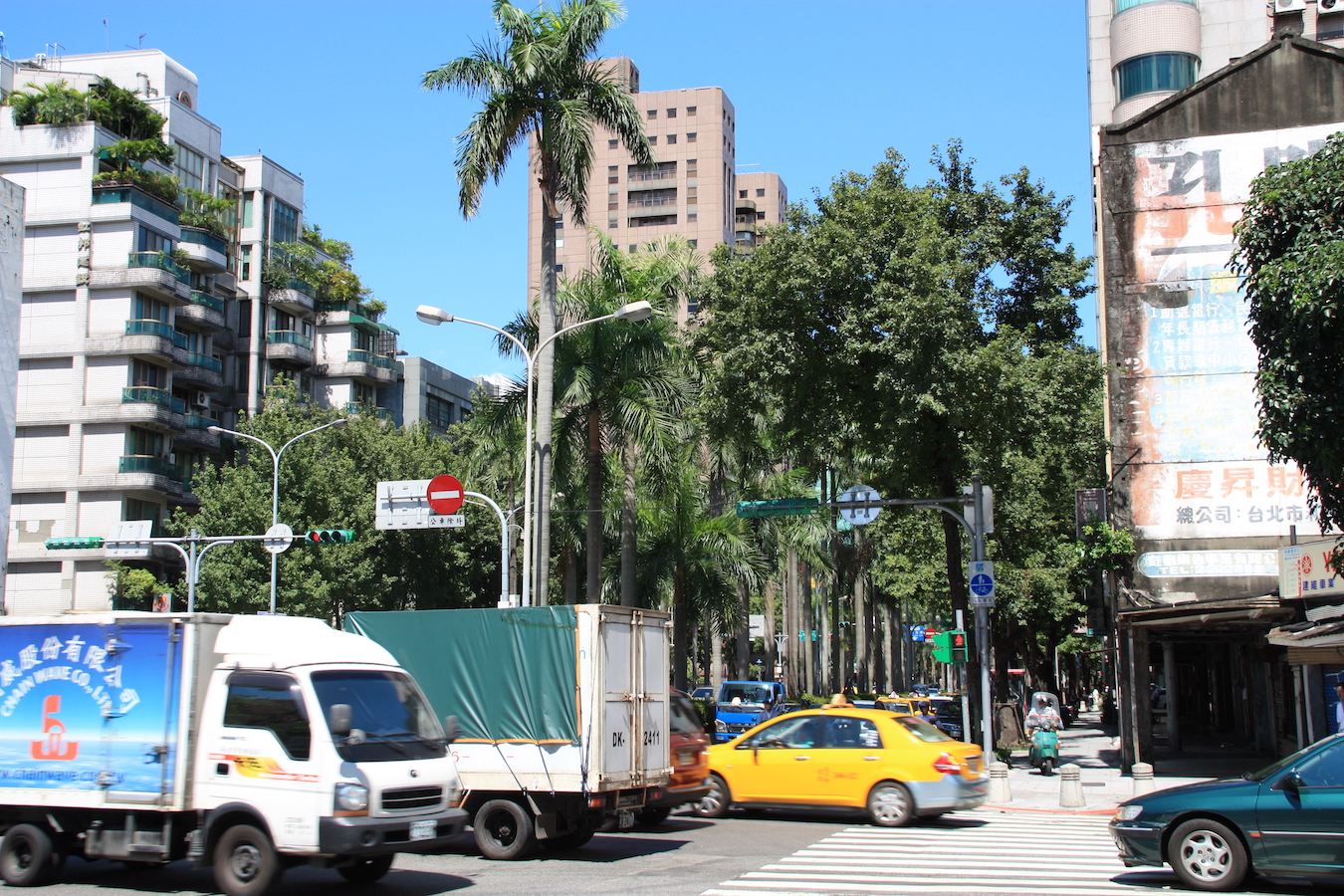by Brian Hioe
語言:
English
Photo Credit: Lord Koxinga/WikiCommons/CC BY-SA 3.0
DEMONSTRATIONS TOOK PLACE in Taipei outside of the Legislative Yuan in late March over plans by the Tsai administration to roll back stiffened penalties for traffic violations. This took place as part of a series of flash mobs across Taiwan, including not only Taipei, but Hsinchu, Yunlin, Kaohsiung, Tainan, Taichung, and Taoyuan.
The main organizer of the protests was Vision Zero Taiwan, the primary group which coordinated demonstrations over the issue of traffic safety in Taiwan in the past year. This became a salient issue ahead of the 2024 elections due to increased international reporting on Taiwan as a “pedestrian hell”. This led to calls for Taiwan to take action, to ensure the rights of pedestrians. It has been noted that traffic culture in Taiwan prioritizes the right of way for cars, which can be dangerous to pedestrian safety.
Part of the concern over Taiwan’s reputation as a “pedestrian hell” was the possible impact that this would have on tourism, at a time when tourism has relaxed in the wake of the COVID-19 pandemic. The US Department of State urges “caution when crossing streets because many drivers do not respect the pedestrian’s right of way” in its travel advisory for Taiwan, while the Canadian government states that “Motorcycles and scooter drivers don’t respect traffic laws. They are extremely reckless.” In 2021, the Japan-Taiwan Exchange Association phrased it as that “Taiwan’s drivers are inclined to prioritize vehicles over pedestrians. […] Even if you’re on the sidewalk, you must still watch for scooters.”
But adding to the calls for improving pedestrian safety were deadly accidents that were widely reported on, such as the death of a three-year-old child who was killed in Tainan in May 2023, also injuring the child’s mother, after a car making a left turn plowed into them.
Indeed, it is often children and the elderly who are affected by traffic accidents. Yet the Taiwan Association for Disability Rights, which was also present at the Taipei demonstration, has also called attention to the lack of accessibility in public spaces in Taiwan, posing dangers for people with disabilities.
 Photo credit: Lord Koxinga/WikiCommons/CC BY-SA 3.0
Photo credit: Lord Koxinga/WikiCommons/CC BY-SA 3.0
There were 15,589 injuries from traffic accidents in 2022. This proves similar to 13,787 injuries in 2011. The first ten months of 2022 saw 2,560 road fatalities. Incidents of drivers failing to yield to pedestrians increased in 2022, with 50,832 cases reported compared to 32,464 cases in 2021. This was likely due to the effects of COVID-19 in 2021, leading to less road traffic.
At the same time, the Ministry of Transportation and Communication (MOTC) has been accused of dragging its feet on the issue, with Minister of Transportation and Communication Wang Kwo-tsai claiming that it would take over a century to change Taiwan’s traffic culture. Wang was criticized at more recent demonstrations as well, with protesters defacing an effigy of him.
In particular, the government moved to improve traffic safety by stiffening penalties for traffic violations. Penalties for drivers of small vehicles failing to yield to pedestrians were increased from 2,000 NT to 3,600 NT, while the penalty for drivers of large commercial vehicles was also increased to 3,600 NT from 2,800 NT. The penalty for motorcycles and scooters stayed the same at 1,200 NT. Fines are higher for vehicles failing to yield to visually impaired individuals, with 4,800 NT in fines for car drivers and 7,200 for truck or bus drivers. Penalties for failing to move forward at a red traffic light were increased from 900 NT to 1,200 NT for scooters, 1,500 NT for cars, and 1,800 NT for trucks or buses.
Most significantly, however, a new reporting system for traffic violations was introduced for members of the public, as well as demerits for violations. This is what the MOTC plans to roll back, in new regulations decreasing some fines to 1,200 NT and removing demerits for what it considers minor violations as illegal parking, using one’s cell phone while driving, and driving a scooter on a sidewalk. This has been criticized by advocates as restoring Taiwan’s status as “pedestrian hell.”
The MOTC’s new regulations will next go to the legislature. With all major parties in Taiwan having vowed to support efforts to improve pedestrian safety in Taiwan ahead of the election, it is to be seen whether they reverse course now. But while Vision Zero Taiwan and aligned groups are expected to continue demonstrating, the demonstration on March 17th is a far cry from earlier protests, which drew up to 50,000 participants last year.

